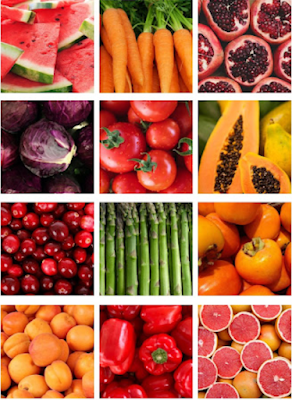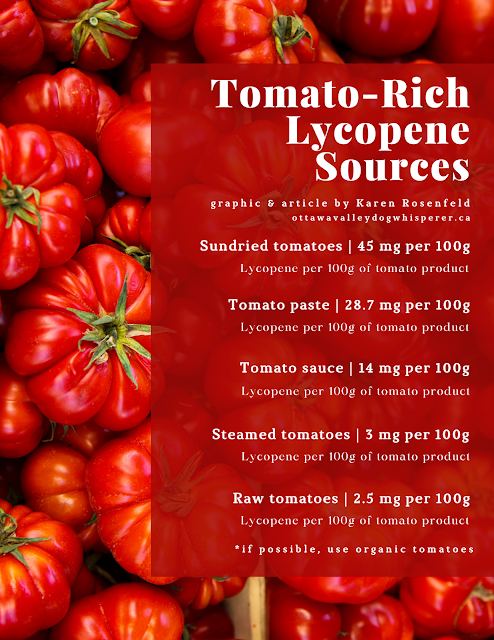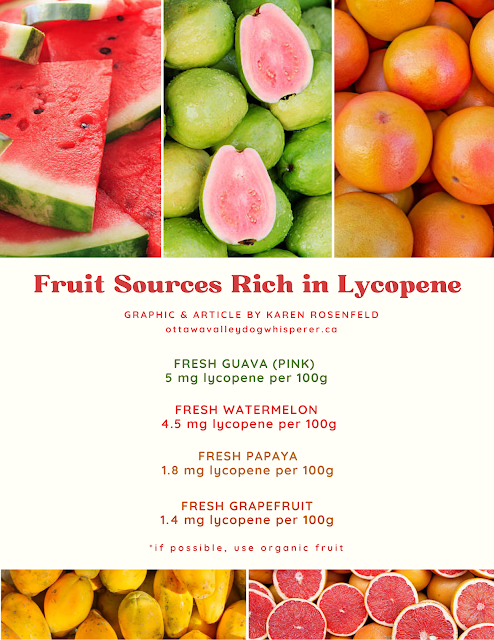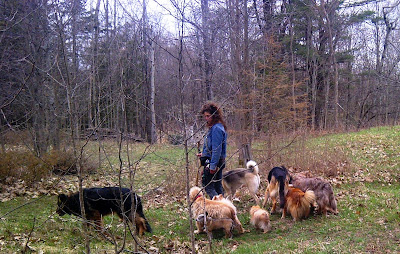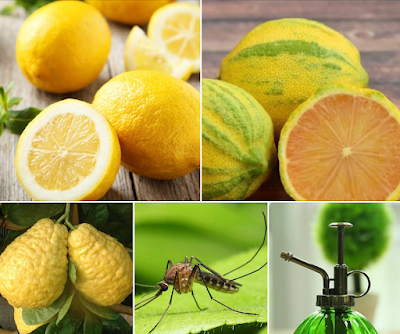Lycopene Rich Foods For Dogs
Antioxidant rich foods to support your dog's health and longevity. Find out how to include lycopene rich fresh foods in your dog's diet.
★ 5 min read
In this article:
- What is Lycopene
- Health Benefits of Lycopene for your Dog
- Helps Prevent These Inflammatory Issues and Diseases in Dogs
- Cancer
- Cardiovascular Issues
- Diabetes
- Immune System
- Neurological Issues and Disease
- Skin Issues
- Toxicity
- Other inflammatory Issues and Disease
- Lycopene Rich Foods for Dogs
- The Best Lycopene Rich Foods for Your Dog
- How to Include Lycopene Rich Foods in Your Dog's Diet
- How To Include Vegetables, Leafy Greens and Fruit in Your Dog's Diet
- Preparation Instructions
- Maximize Lycopene Bioavalability
- Cautions
1.0 What is Lycopene
Lycopene is a naturally occurring plant-based pigment that gives some fruit and vegetables their orange, pink and red color. As a pigment, lycopene helps protect plants from oxidative stress caused by photo-sensitization.
Lycopene is a powerful anti-inflammatory, antioxidant, carotenoid that cannot be made by the body (dog, human, etc.). It must be obtained by eating lycopene rich plant material.
After
ingestion lycopene enters the lymphatic system, then moves on to organs such as
the adrenal glands, colon and liver. The skin only absorbs a small part of ingested
lycopene.
Once consumed, lycopene enters the lymphatic system, then moves to various locations where it is stored. These locations include:
- Adrenal glands
- Brain
- Liver (the primary storage location)
- Kidneys
- Lungs
- Ovaries
- Prostate
- Skin
- Testes
2.0 Health Benefits of Lycopene For Your Dog
Lycopene plays an important role in disease prevention and treatment.
2.1 Helps Prevent These Inflammatory Issues and Diseases in Dogs
Lycopene rich foods in your dog's diet can help prevent and treat inflammatory issues and disease, including:
- Aging
- Anemia
- Arthritis
- Asthma
- Atopic dermatitis
- Benign prostate hyperplasia (BPH)
- Bone loss due to osteoarthritis
2.2 Cancer
Lycopene is an anti-carcinogenic, anti-proliferative, anti-apoptotic.
Lycopene helps protect healthy cells, assists in stopping the spread of cancer (matastasis), inhibits tumor growth and helps kill cancerous
cells.
Lycopene fights a wide variety of cancers.
Including:
- Brain cancer
- Cervical cancer
- Colon cancer
- Kidney cancer
- Liver cancer
- Lung cancer
- Lymphoma
- Mammary (breast) cancer
- Oral cancers
- Ovarian cancer
- Pancreatic cancer
- Squamous cell carcinomas
2.3 Cardiovascular Issues and Disease
Including:
- High blood pressure
- High cholesterol
2.4 Diabetes Type II
Complications including:
- Insulin resistance
- Kidney issues (nephropathy)
- Neuropathy
2.5 Immune System
Including:
- Immune system support
- Immune mediated diseases
2.6 Neurological Issues and Disease
Including:
- Cognitive decline
- Degenerative disk disease
- Dementia
- Epilepsy
- Seizures
- Spinal cord injury
2.7 Skin Issues
including:
- Atopic dermatitis
- UVA radiation damage, lycopene is a natural sunscreen
- Melanoma
- Psoriasis
2.8 Toxicity
Lycopene can help treat toxicity from exposure (ingested, injected, etc.) synthetic chemical substances, and natural substances.
Including:
- acetaminophen and other conventional medications
- aluminum
- aflatoxins
- bisphenol (BPA)
- chemotherapy
- fluoride
- heavy metals
- pesticides
- phthalate
- radiation 2.9 Other Inflammatory Issues and Disease
- Colitis
- Chronic Obstructive Pulmonary Disease (COPD, chronic bronchitis)
- Detoxification
- Kidney damage
- Liver damage and disease
- Metabolic syndrome
- Oral health issues
- Pancreatitis
A dog's species appropriate diet includes a small amount of fresh plant material: vegetables, fruit, herbal plants, seeds and nuts.
Refer to the list of lycopene fruit and vegetables further below, and the general guideline for including vegetables and fruit in your dog's diet.
Offer your dog the items from the list and allow her to self-select the lycopene-rich fruit and vegetables she prefers.
- Never force your dog to eat items she does not want.
- Read about self-selection here.
- Once you know your dog's preferences, you can add the items to your dog's diet.
- For optimal benefits follow the directions further below for preparing and serving lycopene rich fruits and vegetables to your dog.
3.1 The Best Lycopene Rich Fruit and Vegetables for Your Dog
.1 Tomato
Lycopene per
100g of tomato product:
Sundried
tomato provides more than 3x the lycopene found in tomato sauce. Choose organic
sundried tomatoes. See the lycopene comparison below:
Sundried
tomato – 45.0 mg per 100g
Tomato paste –
28.7 mg per 100g
Tomato sauce –
14 mg per 100g
Steamed tomato
– 3 mg per 100g
Raw tomato –
2.5 mg per 100g
Why I Don't Recommend Canned Tomato Products
I don't recommend using canned products as part of a dog's daily diet due to the toxic exposure from cans and can-linings.
While most food
companies have replaced toxic BPA can linings with acrylic and polyester
linings, toxic chemical contamination of canned food is still an issue.
Non-intentionally added substances (NIAS) present in the can, and can lining
migrate (leak and move), into the food.
Metal can and
lining migrates to food include:
- Acrylic resins
- Amino resins (plastic polymers made with aldehyde)
- Catalysts
- Esters, organic and inorganic
- Epoxidized edible oils (plasticizers)
- Lubricants and waxes of various type and origins
- Metals
- Oligomers (a type of polymer present in acrylic and polyester)
- Reaction accelerators to remove oxygen from canned food
Research has
shown that even short-term feeding of canned food products increases the
concentration of toxins in a dog’s body.
Use products sold in glass bottles, rather than canned products.
How About Tomato Pomace in Pet Food Products?
Tomato Pomace used in pet food products is not a source of lycopene. Tomato pomace is made from the waste and effluent (by-products), left over from processing tomatoes for other purposes. The pomace goes through two intense processing procedures that destroy any remaining nutritional value. The tomato pomace used in pet food is derived from tomatoes grown using a wide-range of synthetic-chemical herbicides, pesticides and fertilizers. The toxic residue remains in the pomace after processing. Read more about the issues with tomato pomace in pet food here.
.2 Guava, Papaya, Red Grapefruit and Watermelon
Guava (pink
guava), fresh - 5 mg lycopene per 100g
Watermelon,
fresh - 4.5 mg per 100g
Papaya, fresh - 1.8
mg per 100g
Grapefruit,
fresh - 1.4 mg lycopene per 100g
.3 Summary List - The Best Lycopene Rich Fruit and Vegetables for Dogs
Richest sources:
- Gac fruit
- Guava
- Papaya
- Red Grapefruit
- Watermelon
- Tomato
Good sources:
- Apricots
- Cantaloupe and other orange melons
- Carrot
- Cranberry
- Peach
- Persimmon
- Pomegranate
- Pumpkin
- Red bell pepper
- Red cabbage
- Rosehip
Minor source:
Asparagus
Parsley
4.0 How To Include Lycopene Rich Foods in Your Dog's Diet
4.1 How To Include Vegetables, Leafy Greens and Fruit in Your Dog's Diet
General guideline for including vegetables and fruit in a species appropriate diet:
Vegetables, Leafy Greens:
- 7% to 10% of the daily food intake, but can be more depending on the individual dog's situation.
Fruit:
- 1% to 3% of the diet, but can be more depending on the individual dog's situation.
4.2 Preparation Instructions
4.3 Maximize Lycopene Bioavalability
Lycopene is a fat-soluble carotinoid, this means it should be consumed with a good-source fat to ensure bioavailablility of the lycopene. Include at least one good-quality, species appropriate fat with the lycopene rich food you'll be adding to your dog's meal.
Examples of dog appropriate fats to serve with lycopene rich foods are listed below.
Click the link for each item for: dosing guidelines, serving recommendations, health benefits and other important information.
- Avocado
- Eggs
- Coconut oil
- Flax seed oil
- Hemp seed oil
- Krill oil
- Wild-caught fatty (oily) fish
- Sardines and other small fatty (oily) fish
5.0 Cautions
Supplemental forms of lycopene:
Concentrated lycopene supplements, e.g. synthetic lycopene, encapsulated, softgel suppkements, etc., should not be given to dogs.
Concentrated lycopene supplements can cause excees intake of lycopene leading to lycopenemia and gastrointestinal issues. Concentrated lycopene intake can cause birth of underweight puppies, premature puppies and premature labor in pregnant dogs.
Lycopene should be obtained by including an appropriate amount of lycopene rich foods in your dog's diet.
Holistic Diet, Nutrition, Wellness Services Tailored to Your Individual Dog and Cat
For information about my holistic diet, nutrition, wellness services visit my:
Maintain good health | Address acute and chronic health issues | Pre and post surgery support and recovery
My holistic wellness services are available worldwide via video consultation.
🌎 USA | Canada | UK | Europe | Australia | New Zealand | Asia | South and Central America | Africa | UAE
📱 FaceTime | Facebook | Skype | WhatsApp
Holistic Behavioral Services For Your Dog
For information about my holistic behavioral services visit my:
For dogs of all ages, sizes and breeds
My holistic behavioral services are available locally in-person and worldwide via video session.
🌎 USA | Canada | UK | Europe | Australia | New Zealand | Asia | South and Central America | Africa | UAE
📱 FaceTime | Facebook | Skype | WhatsApp
Affiliations to Companies
✓ None.
✓ I don't sell food or supplements.
✓ I'm not aligned with any companies.
✓ None.
✓ I don't sell food or supplements.
✓ I'm not aligned with any companies.
Article and graphics by Karen Rosenfeld

